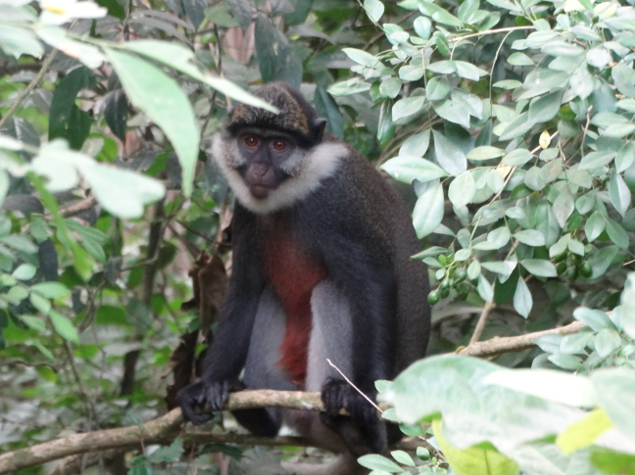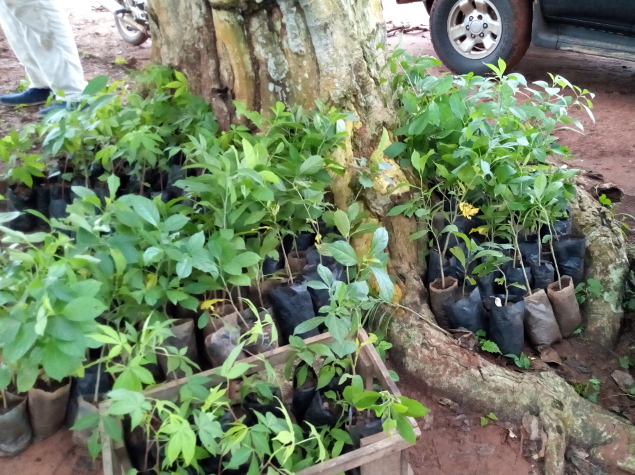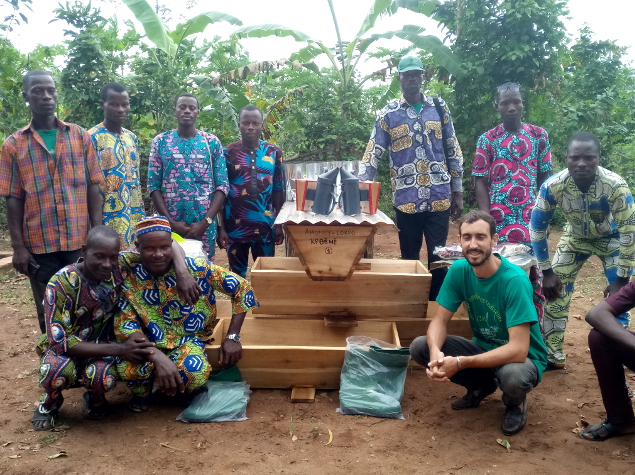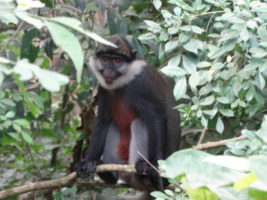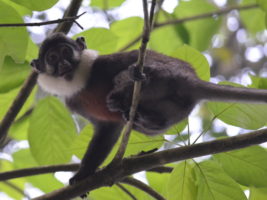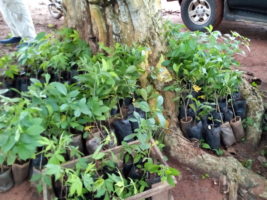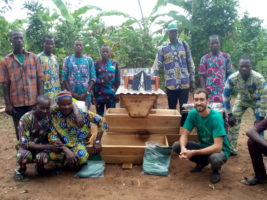Trees and bees helping red-bellied monkey populations in the Sitatunga Valley Community Nature Reserve
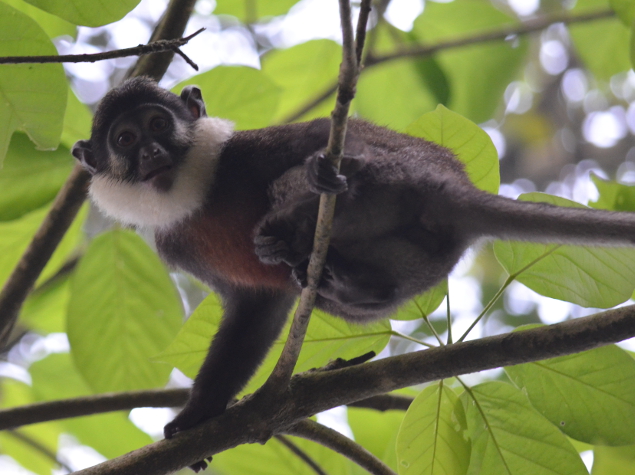
The red-bellied monkey (Cercopythecus erythrogaster erythrogaster) is an endemic diurnal primate, with a current population of between 800 and 1000 individuals across Benin. It is classified as endangered on the IUCN Red List.
The Sitatunga Valley Community Nature Reserve (PNCVS) is situated in West Africa, in the south of Benin. The valley contains over 250 hectares of natural forest relics, currently being added to the international Indigenous and Community Conserved Areas registry. Poaching is on the decline, thanks to the joint efforts of the Forest Administration and Sitatunga Valley Hunters’ Association. Main threats to the monkeys today are reduction of forest land and habitat fragmentation. Nearly all (98%) of households in the region use wood or charcoal as cooking fuel. The challenge now is to focus on habitat conservation/restoration and habitat connectivity by offering income-generating alternatives to logging. Such alternatives include fuelwood plantations and sustainable beekeeping.
The Credi-ONG project teams will begin by studying red-bellied monkey populations. A specific monitoring protocol will be developed to measure the size of the population and produce a species distribution map and actogram for the red-bellied monkeys living on the Nature Reserve.
Support will be given to local communities to create 10 hectares of fuelwood plantations with melliferous trees. Ten community representatives will also be trained and equipped for the installation of five beekeeping units.
FINAL REPORT SUMMARY (November 2019) :
Over the funding period, approximately ten individuals were observed. The NGO justifies this low number due to illegal logging and poaching in the area. Some Cercopithecus Mona were also sighted.
10 hectares of fuelwood plantations with melliferous trees have been planted in order to reduce illegal logging but also to enrich forest patches where the species lives and promote beekeeping.
Finally, 18 people were trained in beekeeping and 10 benefitted of kits. However, the first harvests are disappointing, most likely due to uncontrolled use of pesticides in the area.
The NGO will continue to study the species, in particular thanks to the young volunteers in the communities, via camera traps and GPS and will sensitize local farmers to more adequate pesticide usage.

